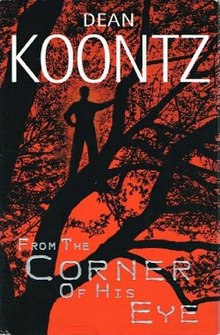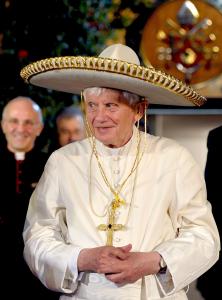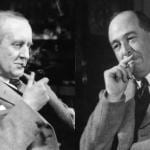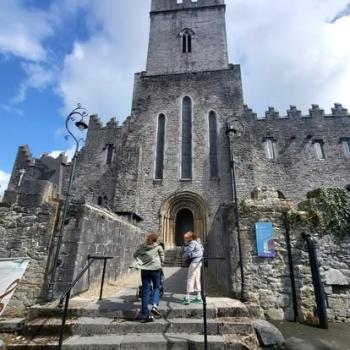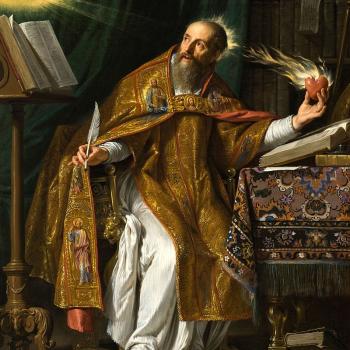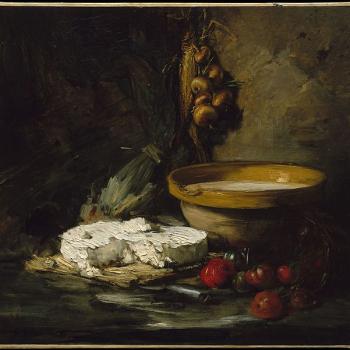In this post we combine all the writers of the last two posts and let you know the writers they admire and aspire to be like.
Both living writers writing today and writers of yesterday whose writings still inspire today.
For more in the Patheos Writers series please consult
The Catholic Bard’s Guide to Patheos Writers
Who is your favorite Living Writer?
Dave Armstrong
Peter Kreeft
Yes, our love for Mary is crazy and wild, because God’s love for us is crazy and wild. We make a big deal out of Christmas; we should make an even bigger deal out of March 25. The greatest event in history, the Incarnation, happened at the Annunciation.
Peter Kreeft, Why is Mary So Important for Catholics? (January 2, 2020) Catholic Exchange
Carl McColman
Can I go with two? For sheer literary elegance, I deeply admire Sara Maitland.
“The desire to break the silence with constant human noise is, I believe, precisely an avoidance of the sacred terror of that divine encounter.”
― Sara Maitland, A Book Of Silence
But for insightful contemplative writing, it would have to be Fr. Martin Laird.
“God in Christ has taken into Himself the brokenness of the human condition. Hence, human woundedness, brokenness, death itself are transformed from dead ends to doorways into Life. In the divinizing humanity of Christ, bruises become balm.”
― Fr. Martin Laird, Into the Silent Land: A Guide to the Christian Practice of Contemplation
Mark Shea
Tolkien. He is the not the God of the dead, but of the living. (Matthew 22:32).
“I coined the word ‘eucatastrophe’: the sudden happy turn in a story which pierces you with a joy that brings tears…” —J.R.R. #Tolkien #Easter
J.R.R. Tolkien @JRRTolkien (Apr 12, 2020)
Mark Wilson
There are so many it’s hard to pick just one. Someone else already said Peter Kreeft. It was his book Fundamentals of the Faith that led me back to being Catholic when I wasn’t.
There are things wrong with the sola scriptura doctrine. First, it separates Church and Scripture. But they are one. They are not two rival horses in the authority race, but one rider (the Church) on one horse (Scripture). The Church as writer, canonizer, and interpreter of Scripture is not another source of revelation but the author and guardian and teacher of the one source, Scripture. We are not taught by a teacher without a book or by a book without a teacher, but by one teacher, with one book, Scripture.
-Peter Kreeft , The Authority of the Bible Catholic Education Resource Center
But I will say on spiritual issues I would say yes their my favorites along with Mark Shea.
For movie reviews, Steven D. Greydanus
“Along with Batman v. Superman and Godzilla vs. Kong, I suppose we’ll get Frankenstein vs. Dracula, and perhaps Transformers vs. G.I. Joe in the HasbroVerse, and Warcraft vs. Angry Birds in the GameVerse — not to be confused with the BoardgameVerse of Battleship vs. Risk and Chutes and Ladders vs. Candy Land.
And eventually all of these shared universes will collide with all of the others, including Alien vs. Predator and Freddy vs. Jason, in a Brobdingnagian rumble pitting Jedi against Pirates of the Caribbean, Terminators against Borg, and Muppets against Smurfs, world without end. Even if for some inexplicable reason that doesn’t happen, the LegoVerse will make it happen”
― Steven D. Greydanus, Kong: Skull Island (2017) Decent Films
For Novels I like the early Dean Koontz
“All human lives are so profoundly and intricately entwined—those dead, those living, those generations yet to come—that the fate of all is the fate of each, and the hope of humanity rests in every heart and in every pair of hands. Every hour in every life contains such often-unrecognized potential to affect the world that the great days and thrilling possibilities are combined always in this momentous day.”
― Dean Koontz, From the Corner of His Eye
and I think J.K. Rowling is a great story teller.
“There are some things you can’t share without ending up liking each other, and knocking out a twelve-foot mountain troll is one of them.”
― J. K. Rowling, Harry Potter and the Sorcerer’s Stone
My Favorite Novel is ‘A Walk to Remember’. It made me laugh and cry. I think I feel in love with the girl. A friend of ours looks like Mandy Moore who played that character in the movie.
“It wasn’t that long, and it certainly wasn’t the kind of kiss you see in movies these days, but it was wonderful in its own way, and all I can remember about the moment is that when our lips touched, I knew the memory would last forever.”
― Nicholas Sparks, A Walk to Remember
The type of writer I would try to emulate in my writing is Dave Barry.
“You can put suspenders on a salamander, but it still won’t make waffles. See what I mean? That sentence makes absolutely no sense, but I got paid to write it. It’s printed right here in a published book!”
― Dave Barry, Live Right and Find Happiness (Although Beer is Much Faster): Life Lessons and Other Ravings from Dave Barry
The writer I have the most intimate relationship of course is my fellow partner in Catholic Bard. My Wife.
Dark and cramped, the occupants of Anna’s womb agreed that it was time to break free from their fleshly confines and see the real world whether she was ready or not. The girl who would be known later as the risk taker among risk takers gave her adopting mother quite the sudden kick as she searched for a way out.
Kristin Wilson, Welcome to 100 Years Ago: Born into a Secret Society of Time Travelers (The Angleus Demension)
Kristin Wilson
My favorite living writer is my husband is because he is my best friend.
The bed zoomed by the river of mattress at approximately mach. 20 and the bed was just in second gear. The super slick highly powered beanbag chairs continued in hot pursuit. KABOOM!, went a pile of mattress as a big fat missile rocketed past the bed and embedded into them. Getting shot at in some surreal part of the universe was just another casual day for Raymond and his gang of high-spirited cross-dimensional travelers.
Mark Wilson,Untitled Action/Adventure/Mystery/Comedy/Romantic/ Story/ High School Creative Writing Project.
JoAnn Wuland
Tough call, as there are so many. I really admire the work Suzanne Collins is doing with her dystopian fiction — her books are very thought-provoking.
“Deep in the meadow, hidden far away
A cloak of leaves, a moonbeam ray
Forget your woes and let your troubles lay
And when it’s morning again, they’ll wash away
Here it’s safe, here it’s warm
Here the daisies guard you from every harm
Here your dreams are sweet and tomorrow brings them true
Here is the place where I love you.”
― The Hunger Games
Rene Albert
That’s a tough one, because I can’t boil it down to just one. And most of my favorite writers aren’t bloggers or theologians, but musicians. I listen to a broad spectrum of rock and metal artists, but I especially appreciate the lyrical styles of Metallica, Alice In Chains, Alter Bridge and Slipknot. I especially appreciate Alter Bridge because of how their lyrics inspire endurance through hardship in life.
Will they open their eyes
And realize we are one
(it’s hard to walk this path alone
Hard to know which way to go)
Will they open their eyes
And realize we are one
(lost the faith and lost the love when the day is done)
Alter Bridge “Open Your Eyes”
Theresa Zoe Williams
Ah this is hard! Neil Gaiman
I knew how to visit the creatures who would never be sighted in the zoos or the museum or the woods. They were waiting for me in books and in stories, after all, hiding inside the twenty-six characters and a handful of punctuation marks. These letters and words when placed in the right order, would conjure all manner or exotic beasts and people from the shadows, would reveal the motives and minds of insects and of cats. They were spells, spelled with words to make worlds, waiting for me in the pages of books. – Neil Gaiman: Unnatural Creatures.
Will Duquette
Hmmm. Tolkien’s dead. Lewis is dead.
You cannot take all luggage with you on all journeys. And on one journey even your right hand and your right eye may be among the things you have to leave behind. –C.S. Lewis
Patrick O’Brian is dead.
“Jack, you have debauched my sloth.”
― Patrick O’Brian, H.M.S. Surprise
Terry Pratchett is dead.
“You want fantasy? Here’s one… There’s this species that lives on a planet a few miles above molten rock and a few miles below a vacuum that’d suck the air right out of them. They live in a brief geological period between ice ages, when giant asteroids have temporarily stopped smacking into the surface. As far as they can tell, there’s nowhere else in the universe where they could stay alive for ten seconds.
And what do they call their fragile little slice of space and time? They call it real life.”
― Terry Pratchett, A Slip of the Keyboard: Collected Non-Fiction
Guess I have to go with Lois McMaster Bujold.
“I need words that mean more than they mean, words not just with height and width, but depth and weight and, and other dimensions that I cannot even name.”
― Lois McMaster Bujold, The Curse of Chalion
What I’ll do when she passes, I dunno.… If you meant, favorite living *Catholic* writer, they are mostly dead, too. But I’ll give a shout out to Rod Bennett.
And then Sylvie and Carter saw Jesus himself for the first time. He was standing next to the fireplace, talking privately with a smaller group of men. He did indeed look quite foreign, nothing at all like the stained-glass Savior of European imagination. His eyes were so brown they were almost black. His thick shoulder-length hair ended in a cascade of ringlets. He had a dark, wiry beard which gave him a distinct rabbinical quality. His attire was also a surprise. No robes or sandals—Jesus was wearing a pair of clean blue jeans and a simple gray warm-up jacket, with white dock shoes on his feet. He really did look like a typical young Israeli Jew, the kind of person who might be a regular at the Tel Aviv branch of Starbucks coffee house.
Rod Bennett, The Christus Experiment
David Mills
I don’t have a favorite. I suppose if I had to name one it would be Benedict XVI.
“It is theologically and anthropologically important for woman to be at the center of Christianity. Through Mary, and the other holy women, the feminine element stands at the heart of the Christian religion.”
― Pope Benedict XVI
All the other writers I look to as mentors and models are dead. Newman being a big one.
Let us not forget, that, as we are called to be Saints, so we are, by that very calling, called to suffer.
Saint John Henry Newman @JHNewman (Nov 20, 2019)
Eve Tushnet
Donna Tartt
“The first duty of the novelist is to entertain. It is a moral duty. People who read your books are sick, sad, traveling, in the hospital waiting room while someone is dying. Books are written by the alone for the alone.”
― Donna Tartt
Emily Schmitt
I’d have to say playwright Sarah Ruhl. She writes so lyrically about the mundane and mystical elements of human experience. I included quotes from her play “Eurydice” in letters I wrote to my parents on my wedding day.
“This is what it is to love an artist: The moon is always rising above your house. The houses of your neighbors look dull and lacking in moonlight. But he is always going away from you. Inside his head there is always something more beautiful.”
― Eurydice
Edwin Woodruff Tait
Fiction? Non-fiction? Wendell Berry is probably up there.
“Telling a story is like reaching into a granary full of wheat and drawing out a handful. There is always more to tell than can be told.”
― Wendell Berry, Jayber Crow
I’m also a fan of the British author Paul Kingsnorth.
“Yes there were giants in the Earth it was real all of it. All of the stories they told you when you were a child they were all true. Imagine that. Imagine if adulthood is the fairy tale and childhood is the reality. Imagine giants’ graves all over the land and the motorways roaring past them and it is the motorways which are the romantic lies.”
― Paul Kingsnorth, Beast
Among living theologians Joseph Ratzinger might be my favorite
“The only really effective apologia for Christianity comes down to two arguments, namely the saints the Church has produced and the art which has grown in her womb.” -― Joseph Ratzinger (Benedict XVI)
Avellina Balestri
My favorite living writer would probably be Bishop Robert Barron. I deeply appreciate his reflections on spirituality and life in general from a Catholic perspective, both his various articles and daily reflections. I keep up to date with , his books, his Youtube videos, documentary series. The Catholicism series is a classic. I find him as someone who is able to convey these truths in a very erudite and understandable fashion for a laymen.
The young people that I deal with on a daily basis through the web have a thousand skeptical questions about God, about religion, about the institutional Church and its moral teaching, about the Bible, etc. But underneath those questions are always an implicit fascination and a desire for connection. I believe they would like the Holy Father to know that they are still in the game, still eager to learn, still hungry—even when on the surface they might seem angry or disaffected. Their questions are not finally an indication of alienation from the Church—just the contrary.
Bishop Robert Barron, How to Help Young People Find Faith: An Interview with Bishop Barron ( August 1, 2018) Word on Fire
Pat McNamara
As a Church historian, I’d have to say Fr. John O’Malley, SJ, at Georgetown University.
“Unlike previous councils that had to deal with one or two specific heresies, this council had to face a more comprehensive problem: the very foundations of faith had been shaken and put into mortal jeopardy. Rationalism, materialism, religious indifference, and, most generally, denial of the spiritual dimension of human life figured large in the problems to be dealt with.”
― Vatican I: The Council and the Making of the Ultramontane Church
Fellow Dying Inmate
Cornel West.
“Music at its best…is the grand archeology into and transfiguration of our guttural cry, the great human effort to grasp in time our deepest passions and yearnings as prisoners of time. Profound music leads us–beyond language–to the dark roots of our scream and the celestial
heights of our silence. ”
― Cornel West, The Cornel West Reader
Rebecca Hamilton
I think my favorite living Catholic writer is Mark Shea. I want to be him when I grow up … or maybe when I become a big kid again. (Lol)
I’ve been reading a biography of Rod Serling. I am really struck by how much of my early moral formation I owe to him, certain old science fiction movies, Frank Capra, and Mad Magazine. I don’t know what that says about me. Pagans pretty much start with what luck throws us. I didn’t have Aristotle or Plato. –Mark Shea
William Hemsworth
Dr. Brant Pitre
In ancient Jewish Scripture, “I am” was the name of God—the God who had appeared to Moses in the burning bush on Mount Sinai (see Exodus 3:14). In a first-century Jewish context, for Jesus to take the name “I am” as his own is tantamount to claiming to be God. Should there be any doubt about this, notice that some of the people in Jesus’s Jewish audience get the point. That’s why they respond by accusing him of “blasphemy” for making himself “God” (Greek theos). They even take up stones to kill him.
Brant Pitre, The Case for Jesus (2016)
Marie Avers
That’s hard! Probably Arundhati Roy.
The secret of the Great Stories is that they have no secrets. The Great Stories are the ones you have heard and want to hear again. The ones you can enter anywhere and inhabit comfortably. They don’t deceive you with thrills and trick endings. They don’t surprise you with the unforeseen. They are as familiar as the house you live in. Or the smell of your lover’s skin. You know how they end, yet you listen as though you don’t. In the way that although you know that one day you will die, you live as though you won’t. In the Great Stories you know who lives, who dies, who finds love, who doesn’t. And yet you want to know again.
That is their mystery and their magic.”
― The God of Small Things
*Let’s be honest, it is actually Rebecca Bratten Weiss
To make peace with death is to make peace not with purity and emptiness, but with the disgusting. There are forms of piety that turn away from all things dirty or disgusting, emphasizing purity and emptiness, but these pieties are foreign to the Christian worship of Christ incarnate, Christ born of woman, Christ with a human body all organs and fluids, Christ bleeding on the cross. And thus, it is not permitted that we should turn away from another human because he is disgusting, or because she is dirty.
Rebecca Bratten Weiss In Praise of the Disgusting (March 11, 2016) Suspended in Her Jar @ Patheos Catholic
and Kristy Burmeister, but saying so will make them feel weird. Wait, did I just say that out loud?
Sometimes I need God to be human-sized. I need to know that he became one of us and suffered as we suffer. I need that connection with Jesus so I know God gets it. He isn’t distant and observing human suffering from above. He got right down into it alongside us.
But sometimes I need God to be big. Bigger than big. When I start praying my nightly prayer and stating one prayer request leads me to thinking of another dozen people with urgent and unmet needs, I need God to be big. When I see how so many people revel in dehumanizing one another and exploiting the vulnerable and enabling abuse, I need God to be big.
I need to know God is bigger than us. I need to know this evil won’t endure forever. It’ll outlive me, but it will end.
Kristy Burmeister The World’s Largest Crucifix: When We Need God to be Big (August 20, 2018) Way Station in the Wilderness @ Patheos Catholic
Rebecca Bratton Weiss
I don’t have any one favorite. I have read George R.R. Martin’s Song of Ice and Fire series seven times in the past few years, and I’d love to have a drink with him and lament the ways of this world, so I’ll say him, for now.
“… a mind needs books as a sword needs a whetstone, if it is to keep its edge.”
― George R.R. Martin, A Game of Thrones
Or possibly Margaret Atwood, who has gets snarkier and wiser by the year.
“We were the people who were not in the papers. We lived in the blank white spaces at the edges of print. It gave us more freedom.
We lived in the gaps between the stories.”
― Margaret Atwood, The Handmaid’s Tale
I also am rather biased in favor of the essays and creative works of my collaborators Joanna Penn Cooper
Will literature save us, will language? All I know is that it is a way of taking perspective on the world, a way of helping build empathy. We create wide nets of language and humor and understanding, my son and I. We talk, we laugh, we struggle, many times, to understand, to empathize. We each hold on to our own nuggets of stubbornness and humor, and love each other in our weirdness, in our complex humanness. I am hoping, through books, through discourse, through play, to create the space to help him understand that other humans, even girls, are having their own complex, weird, interesting experience of the world.
Joanna Penn Cooper, Approaching Mystery: The Mysteries of Girlhood (January 25, 2018) Sick Pilgrim @ Patheos Catholic
and Jessica Mesman,
It does seem strange to me, though, given our attribution of heavenly queenship of the saints to a human mother, Mary of Nazareth, that we should all be so ashamed of what our bodies can do, when surely her body did the same. (Though a quick search of the sentence “Did Mary menstruate?” will produce all sorts of bizarre theological argument for and against.)
Jessica Mesman Griffith, The Strangeness of Mary’s Body (November 19, 2018) Sick Pilgrim @ Patheos Catholic
and the poetry of my sister Joanna Bratten.
A writer who I think deserves more attention is novelist Rosalie Morales Kearns.
If you have not read her Kingdom of Women, you should.
Last year a new one had shown up: a woman priest, of all the daft, new-fangled things this new century had wrought. The monk-spirits were inclined to be disapproving, but they couldn’t help pitying her, knowing the bloody beginnings of her priestly career. And she looked so fragile: sharp elbows and jutting shoulder blades, fever-bright eyes. You would have thought she was recovering from an illness if not for that exuberant dark hair, that reckless smile.
Rosalie Morales, Kingdom of Women, (2017)
Jen Fitz
Deanna K. Klingel
Religion was a part of their school curriculum, as it had been all their lives. The students in the refugee camp were mostly Catholic; a few were Jewish. They had a quiet priest, a hidden church, a secret synagogue, an unknown rabbi.
Deanna K. Klingel, Rock And A Hard Place
Scott Eric Alt
Annie Dillard
“We sleep to time’s hurdy-gurdy; we wake, if ever we wake, to the silence of God. And then, when we wake to the deep shores of time uncreated, then when the dazzling dark breaks over the far slopes of time, then it’s time to toss things, like our reason, and our will; then it’s time to break our necks for home.
There are no events but thoughts and the heart’s hard turning, the heart’s slow learning where to love and whom. The rest is merely gossip, and tales for other times.”
— Annie Dillard (Holy the Firm)
Monsignor Eric Barr
My favorite living writer is James Lee Burke, Catholic novelist whose Dave Robicheaux series of mysteries are not only theological masterpieces but also beautifully written pieces of literature. He is a master of the English language.
“The evening sky was streaked with purple, the color of torn plums, and a light rain had started to fall when I came to the end of the blacktop road that cut through twenty miles of thick, almost impenetrable scrub oak and pine and stopped at the front gate of Angola penitentiary.”
― The Neon Rain
Fr Matthew P. Schneider, LC
It’s tough to say. I guess that I would have to say Ratzinger / Benedict XVI. Another close one is Sr. Marie Paul Curley, FSP, who has written some great pray books.
Easter is not a time for cute bunnies and jelly beans, sunny days and new bonnets. Easter is especially for those of us who, like Mary Magdalene, are burdened by disillusionment, grief, anxiety, suffering, and despair.
In visiting Jesus’ tomb, Mary Magdalene discovers that even in death, the Lord has not abandoned her. Though she cannot see him yet, Jesus is there in the dark with her, and he brings the dawn with him.
Sr. Marie Paul Curley, FSP, Celebrating Easter in a world turned upside down: A reflection for Easter Sunday, Year A (April 10, 2020) saltandlighttv.org/
Stephanos Pedrano
I don’t have one among the living. Among the dead: the holy Gospel according to John;
For God so loved the world that he gave his one and only Son, that whoever believes in him shall not perish but have eternal life. John 3:16
Fr. Hans Urs von Balthasar, especially in his commentaries on Scripture.
“God defines himself as “I am who I am”, which also means: My being is such that I shall always be present in every moment of becoming.”
― Hans Urs von Balthasar, Unless You Become Like This Child
Now that we walked among the land of living writers, lets remember our beloved dead.
Patheos Catholics Favorite Deceased Writers (Coming Soon)



